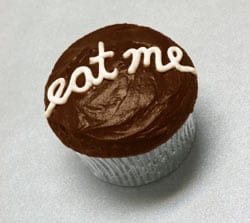
 Emotional Eating and Unmet Needs —
Emotional Eating and Unmet Needs —
Many people actually don’t realize that they eat emotionally. They don’t think of boredom as an emotion or eating out of happiness as Emotional Eating. But eating when you are not hungry; eating because something compels you to consume when you are not eating for hunger, is Emotional Eating.
Emotional eating has always been about trying to meet our unmet needs. We run around with many unmet needs. Very often, although not exclusively, they are related to needs regarding our past or fears we face of an unknown future.
Our pasts are rife with individuals who needed to deeply acknowledge us and somehow let us down. Our futures are the unknowable, filled with possible changes in abilities due to aging.
Julie M. Simon, author of the “Emotional Eater’s Repair Manual” writes, “Your emotional eating represents your limited ability to care for yourself. It’s a sign that you’re lacking self-care skills that are generally learned in childhood. Emotional eating highlights your difficulty in connecting to yourself; in paying attention to your mind, body, and spirit signals; and in responding appropriately to meet your needs.”
Many have told me they eat too much because they like food. Eating beyond capacity is not because we like food. It is about tuning out our signals of satiety. There is often a missing link in our satiety. We fear we won’t get it again tomorrow, or we won’t get our money’s worth. Or because we can get away with it. Or because we can’t. So we eat to join in or to get numb. We eat because we “know” we’re hungry even though our physical needs have been met. We’re hungry alright. But not for food, but for needs so fundamental that haven’t been met.
We can’t expect to just give up the one coping mechanism that doesn’t talk back. Food.. When we use food emotionally, we get a release of feel-good hormones such as dopamine that calms us. This strategy is actually effective like any addict who craves a hit. Stopping Emotional Eating is a multi-step process developing positive strategies to achieve some relief and we must tenaciously practice.
We start trying to connect and nourish the wounded self. We choose to eat foods that are healthier choices. We choose that for right this second we won’t make the inappropriate choice with food. We’ll wait ten minutes. Sometimes we’ll choose NOT to eat and other times we’ll choose to portion the “feel-good” choices like chocolate. I used to eat lite popcorn and jam three large bites in my mouth just to feel the stuffed feeling in my mouth, numbing the bad feeling away for just a moment until I could get a grip. I used to tell the chocolate, “YOU NEED TO MAKE ME FEEL BETTER!” and put a portion in my mouth, letting it melt slowly and actually trying to feel the dopamine release to give me a moment of relief.
The Buddhist practices of Acceptance and Letting Go are effective life practices. You don’t need to be a Buddhist to access this understanding. We must accept what is and let go of anything that we are not in control of. If you cannot change others or the situation, you may choose to change your perception.
Changing perception is painful because so often we do not step back to examine our perceptions. So we breathe. We offer compassion to our “unmet-needs” self. We love ourselves unconditionally for having these needs. We face our fears that our needs are a bottomless pit of which we will never climb out. We ask ourselves “Is my perception actually true?” Is it possible it is not true? Could there be a different skew to this current challenge?
When you can stop and ask yourself right here, right now, “Am I okay in this moment?” many times you might realize that your unmet need isn’t about this current moment. Right now you are fine. It takes hours of practice to stay in the moment, to come back to the moment each time when you catch yourself mentally in your past or future. You must catch yourself and keep asking, “Am I okay in this moment.” It is a discipline.
All eating when not satisfying hunger, is Emotional Eating. It is not wrong to eat emotionally. But wouldn’t it be a gift to yourself and your needs to feel that you always had the choice to eat? To feel that you could enjoy food without being ruled by it’s influences? Wouldn’t it feel amazing to be able to connect to yourself and respond appropriately to your needs?


I like that this blog points out that, “When we use food emotionally, we get a release of feel-good hormones such as dopamine that calms us.” I’m always bewildered when people say that after eating several cupcakes they feel sick…because I don’t…I feel great (i.e. – the dopamine rush). However, I don’t like the crazy out of control feeling while I’m binging and I also don’t like the end result of being overweight and unhealthy so ultimately I want to find a better way to deal with stress…thank you for another great article, Amy! As always, it was an insightful read! – Rebecca